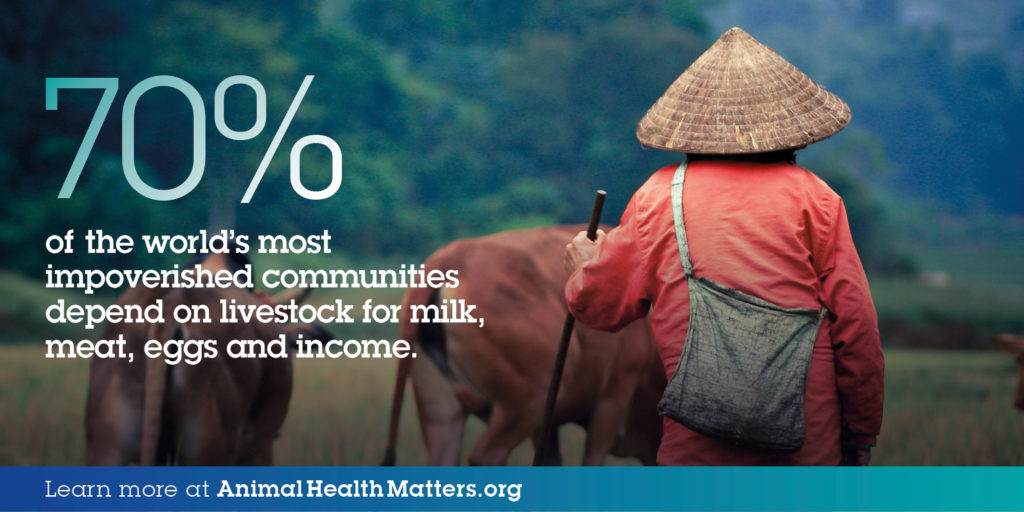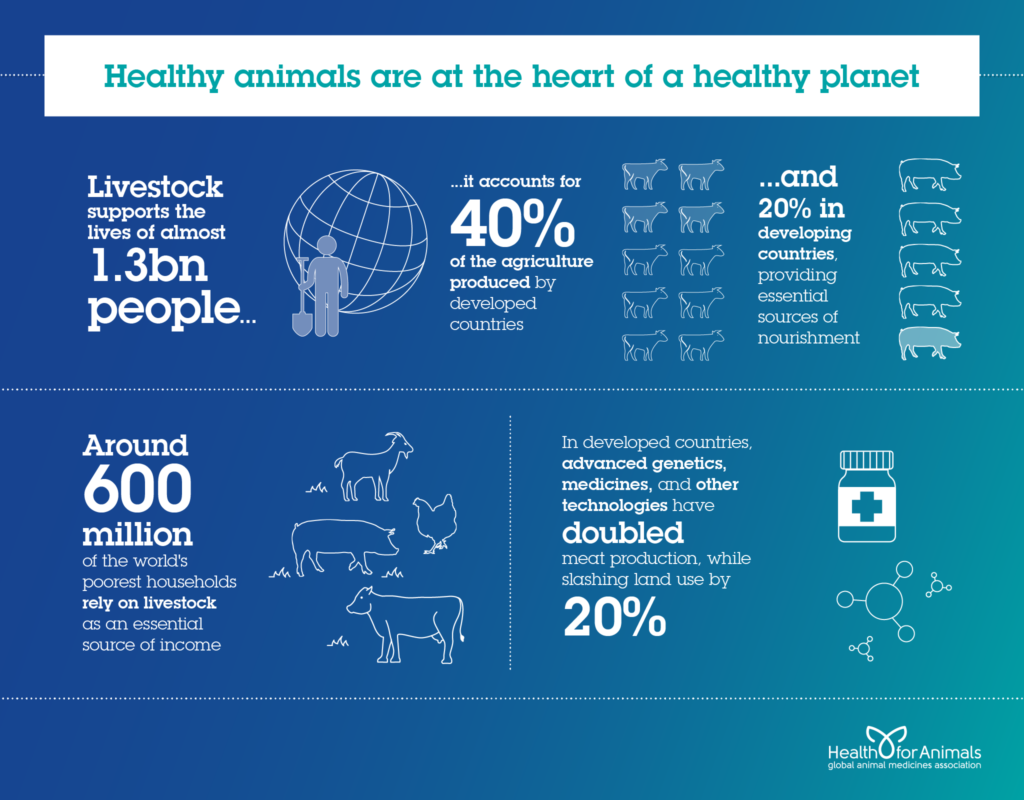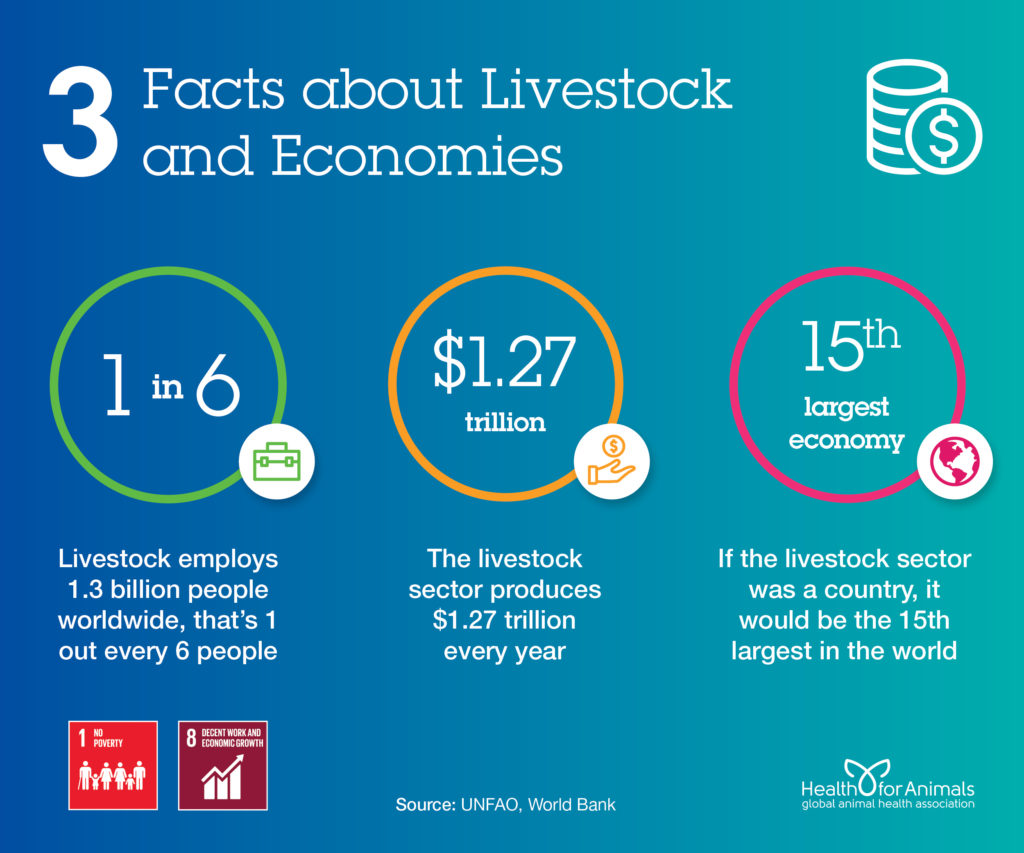Economic Development
Livestock are the cornerstone of communities and economies worldwide.
These animals provide essential nutrition for children, supporting their physical and mental development and life chances, and livestock can be a crucial investment. For smallholder farmers in developing regions, a single animal can provide food for their family, manure for their crops and labor to help till the field.
The UNFAO described the loss of livestock as “not only…a loss of income for families, but also family savings and investment over many years. Livestock represents a safety net for many families and the loss of such productive assets will impact significantly on lives and livelihoods.”
Veterinarians, with the help of medicines, can reduce this risk. Innovations like heat-stable vaccinations allow animal health professionals to protect livestock in the most remote regions. Antibiotics can end a raging disease outbreak before a herd is lost. Parasiticides can limit disease spread between animals.
Livestock is a driver of agriculture, and agriculture is the driver of economies worldwide. Protecting the health of animals improves the future of nations.



